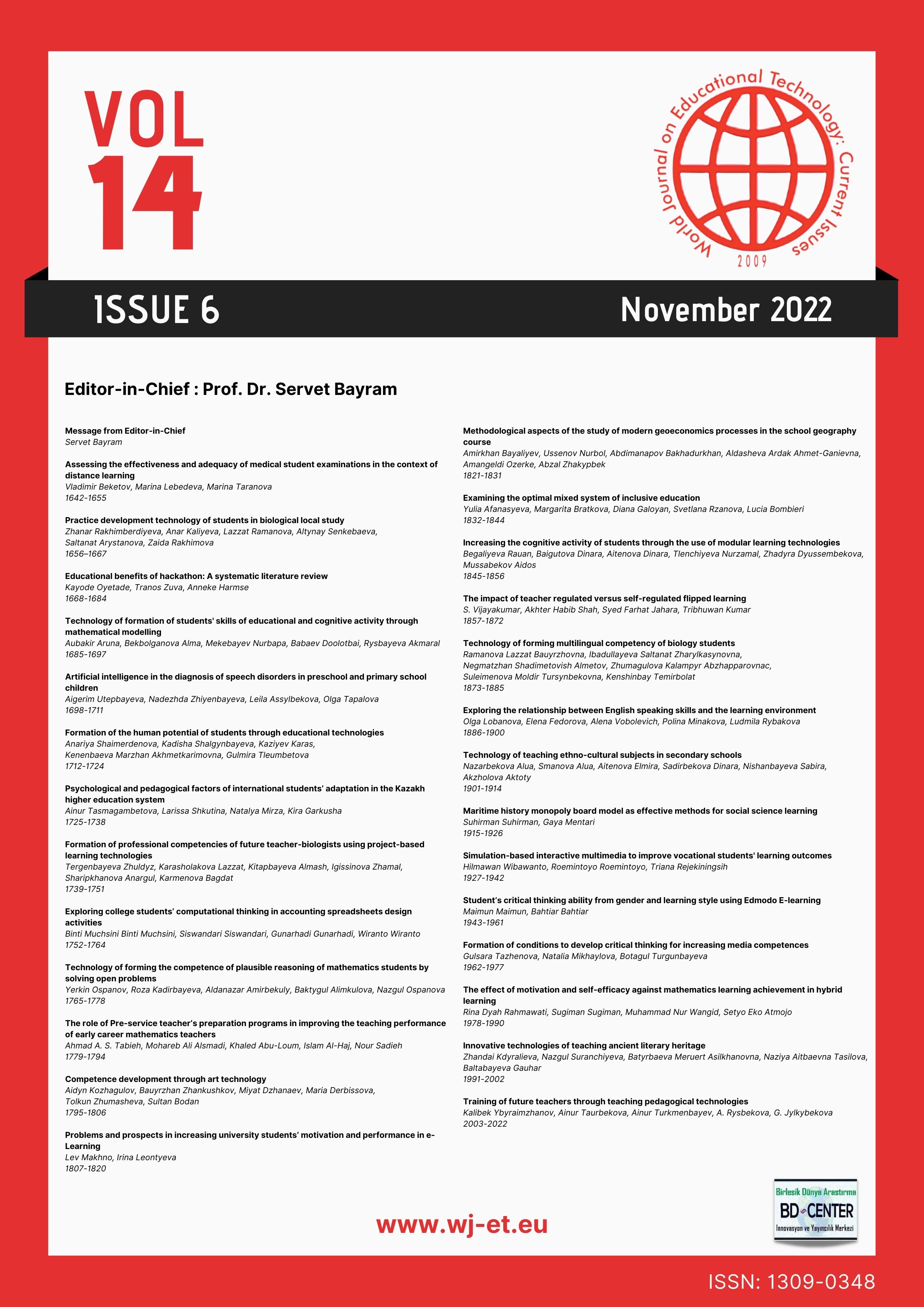Technology of forming multilingual competency of biology students
Main Article Content
Abstract
The purpose of this research; the aim of this study is to evaluate the views of biology students on the technology of creating multilingual competencies. In this study, phenomenology design, one of the qualitative research methods, was preferred. The study group of the research consists of 80 biology students studying in biology departments at universities in Kazakhstan in the 2022–2023 academic year. The data collection tool of the research is the semi-structured interview form developed by the researchers. The content analysis method was used in the analysis of the research data. As a result of the research; it has been revealed that the majority of biology students participating in the research have moderate multilingual proficiency. The majority of biology students who evaluated the possibilities of creating multilingual competence in universities stated that they also found these opportunities at a moderate level. Regarding their motivation to benefit from multilingual competence-building technology, the majority of biology teachers stated that they were highly motivated. The results obtained from the research necessitated the reorganisation of the education given to biology students in universities in order to gain multilingual competence.
Keywords: Multilingual competence, technology, biology students;
Downloads
Article Details

This work is licensed under a Creative Commons Attribution 4.0 International License.
World Journal on Educational Technology: Current Issues is an Open Access Journal. The copyright holder is the author/s. Licensee Birlesik Dunya Yenilik Arastirma ve Yayincilik Merkezi, North Nicosia, Cyprus. All articles can be downloaded free of charge. Articles published in the Journal are Open-Access articles distributed under CC-BY license [Attribution 4.0 International (CC BY 4.0)].
Birlesik Dunya Yenilik Arastirma ve Yayincilik Merkezi (BD-Center)is a gold open-access publisher. At the point of publication, all articles from our portfolio of journals are immediately and permanently accessible online free of charge. BD-Center articles are published under the CC-BY license [Attribution 4.0 International (CC BY 4.0)], which permits unrestricted use, distribution, and reproduction in any medium, provided the original authors and the source are credited.
